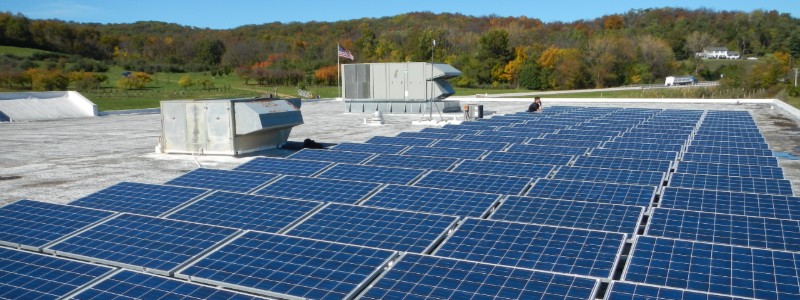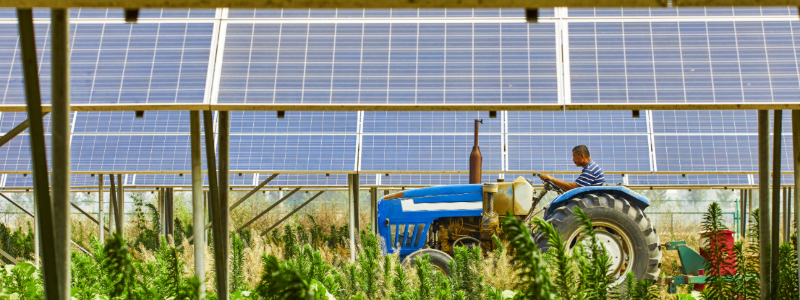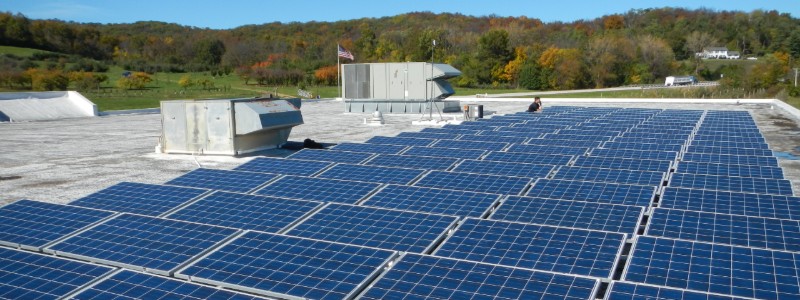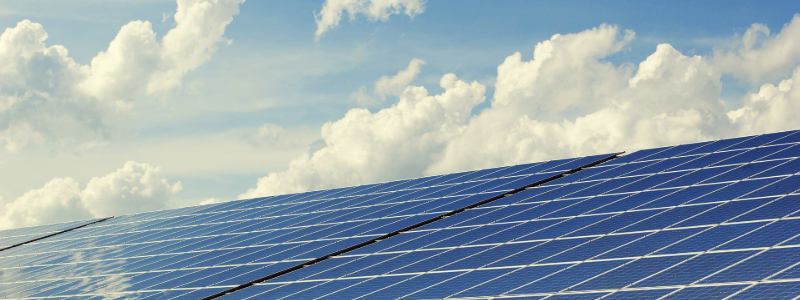NEW: We Made the List: America's Top 100 Most Loved Placed to Work
Pivot Energy Community Solar in the Land of Lincoln
September 30, 2019

Pivot Energy has a long history of developing and constructing solar projects in the Midwest, starting in Illinois and Missouri in 2010. After Illinois passed the Future Energy Jobs Act (FEJA) in 2016, Pivot began both commercial and community solar campaigns throughout the state. We worked directly with landowners and local authorities to lease and permit more than 50 community solar garden sites throughout both ComEd and Ameren territory. In addition to Illinois community solar, we have also focused efforts on schools, local cities, and private companies to develop on-site commercial solar. Much like shared solar, the on-site solar arrays will provide customers significant savings on electrical costs for the life of the system.

Pivot was one of the numerous solar developers focused on the expanded opportunity for solar development in Illinois. No one anticipated the appetite for both community and on-site solar amongst electricity users in Illinois until the application window opened for developers to begin their project submissions. On April 10th, 2019, the Illinois Power Agency (IPA) held the Adjustable Block Program’s Lottery, in order to select projects for limited capacity available.
With overwhelming demand, 1.7 gigawatts of community solar applications were subject to the public lottery. In Illinois, the community solar category experienced the greatest application pool of projects hoping to get awarded. All incentive blocks for the community solar category were awarded the day of the lottery, totaling 208 megawatts (MW).
The community solar block category has the highest demand in the Adjustable Block Program, followed closely by the large distributed generation category for on-site solar projects.
Community solar was allocated 208 MW of the 666 MW available capacity, which is 31% of the Adjustable Block Program. All 208 MW of community solar capacity was allocated the first day to the lottery. The large distributed generation block category was allocated 291 MW of capacity and has a total of 25 MW of available capacity which remains open for project applications.
Pivot Energy was awarded 11 community solar projects totaling 29.7 MW DC capacity, and 6.2 MW DC of Large DG capacity allocated across 27 sites in both ComEd and Ameren utility territories.
Our community solar gardens will serve approximately 5,200 residential subscribers, all managed through SunCentral, Pivot Energy’s proprietary community solar subscriber management platform. The SunCentral management platform offers transparent and responsive resources to manage the complexity of community solar. Built by industry veterans, SunCentral embeds industry expertise within an intuitive cloud platform. The platform integrates portals for contracting subscribers, billing management, and financial and compliance reporting. SunCentral delivers actionable insights and tools so each community solar stakeholder can deliver revenue, value, and remain compliant. Since being awarded in April, we are excited that several of the projects will break ground in the Fall of 2019.
Illinois’ Solar Landscape Past to Present
The solar market has exploded in Illinois with over 500 MW of solar capacity expected to be installed and operational by the end of 2020. This number could continue to grow as the large distributed generation category continues to gain momentum. To understand how this growth is possible a look back at the legislation that enabled it is required.

The Illinois Power Agency Act, enacted in August 2007, requires large investor-owned electric utilities (EUs) and alternative retail electric supplies (ARES) to source 25% of eligible retail electricity sales from renewable energy by 2025.
The Future Energy Jobs Act was passed in 2016 and provided the funding necessary for procuring Renewable Energy Credits (RECs) from solar in order to meet the Renewable Portfolio Standard of Illinois. The directive of FEJA is to expand the Renewable Portfolio Standard (RPS) to ensure stable, predictable funding for renewable development, providing $180M per year, growing to $220M per year, in funding for renewable resources, including new wind power, large-scale solar power, rooftop solar, and Illinois community solar. The intent of FEJA is also to:
- Stimulate job creation with new investments in energy efficiency, renewables, and energy innovation.
- Provide job training and create thousands of clean energy jobs in energy efficiency, energy innovation, and renewable power industries
- Enhance Illinois as a leader in the clean energy economy, attracting new investment and new companies to Illinois.
Has FEJA worked?
First, FEJA is providing a new career path for people entering the workforce in Illinois. The timing for the act was perfect considering the U.S. Bureau of Labor Statistics recently reported that solar photovoltaic installer is expected to be the fastest-growing occupation through 2028. Local community colleges, such as Kankakee Community College and Lincoln Land Community College, offer solar installation classes. Likewise, the Midwest Renewable Energy Association offers a Solar Training Academy that will prepare students for the National American Board of Certified Energy Practitioners (NABCEP) exams focused on solar photovoltaics. Lastly, Illinois State University, Eastern Illinois University, and Western Illinois University all offer bachelor’s degrees with a focus on Renewable Energy and Sustainability to prepare them for a career in energy.
The impact of the recently awarded 513 MW in the Illinois solar market will be felt in many job sectors. There will be field jobs developed such as:
- solar photovoltaic installer
- electrician
- carpenter
- civil engineering
- fencing
- project managers.
There will also be an increased need for civil, electrical and structural engineering services, site surveying, environmental consulting personnel, local ecologists, and ongoing operations and maintenance contracts. In addition, the tax revenue, permitting fees and local spending will provide boosts to counties and cities where solar is being installed. However, industry supporters believe that the intended benefits of FEJA will not be met, due to the budget shortfall we are facing.

Illinois’ Community Solar Future
Currently, the incentives set by FEJA are due to expire by the end of this year, and this could bring the majority of solar development both commercial and community to a halt. Noticing that Illinois’ community solar future could face a devastating end, Senator Bill Cunningham (D-Chicago) and Representative Will Davis sponsored the Path to 100 Act, which is seeking to expand the goals set by FEJA by increasing Illinois’ Renewable Portfolio Standard to 40% by 2030. This plan will provide funding for new utility-scale solar and wind, residential, commercial, and community solar along with new opportunities for energy storage. This will ensure the thousands of jobs created will not come to an end in the next year, and shovel ready projects can move forward.
Without passing the Path to 100 Act, the growth of renewables in Illinois and the associated jobs are at risk. Pivot Energy is proud to support the Path to 100 and the continued growth of renewable energy and renewable energy careers in Illinois.
###
About Pivot Energy
Pivot Energy is a Denver-based solar energy company that is focused on helping accelerate the rapid transition taking place in the energy industry to a more decentralized and cleaner approach to power generation. Pivot offers a distributed energy platform that includes a range of services and software aimed at serving the full commercial solar ecosystem, including retail customers, project developers, system operators, utilities, and financiers. The company develops, finances, builds and manages Illinois community solar and commercial solar projects around the country. Pivot operates on a triple bottom line basis, measuring success by the positive impact to people, planet, and profit. Learn more at pivotenergy.net.







